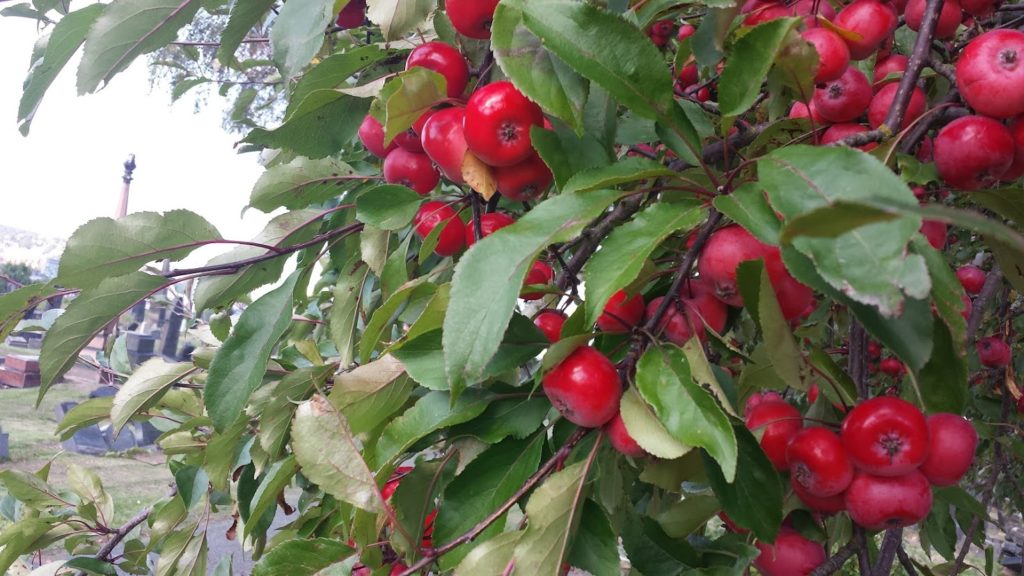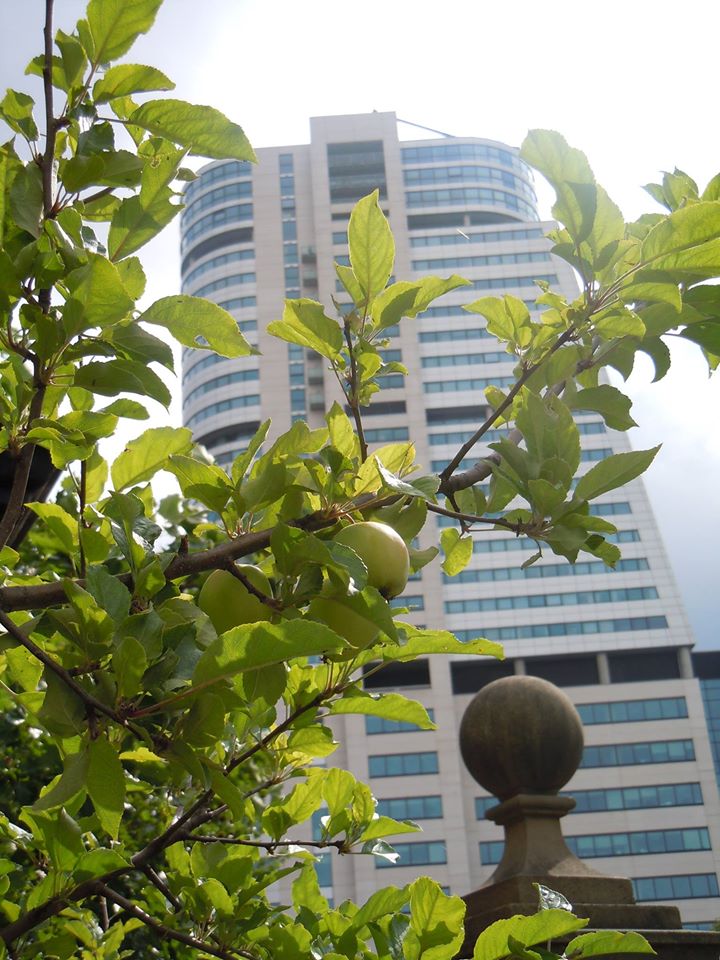
 Blackberry picking is a simple late Summer pleasure, which many of us will have enjoyed since we were little; cramming more blackberries into our mouths than we managed to take home, fingers and clothes stained with berry juice.
Blackberry picking is a simple late Summer pleasure, which many of us will have enjoyed since we were little; cramming more blackberries into our mouths than we managed to take home, fingers and clothes stained with berry juice.
These are much-loved childhood memories, for even a hardened suburbanite like me. But why stop there? What else could we pick?
I used to think that foraging was just a countryside activity. Something which is only possible on a quiet hedgerow-lined country lane in the Dales. Or maybe getting lucky and finding bilberries while walking on Otley Chevin or Ilkley Moor. But a few years ago I noticed than our urban environment is heaving with free wild food every year, which simply goes to waste.
Municipal planting schemes mean our roadside verges and neighbourhood parks are full of apple and cherry trees. Wasteland and ginnels are colonised by blackberries, blackthorn and roses. Even city centre flower pots contain useful culinary herbs, if you know where to look!
Before long I was regularly out picking cherry plums from a housing estate in Belle Isle, collecting tiny red apples from a tree in Holbeck Cemetery, harvesting blackcurrants from council planted borders in Holbeck, gathering wild garlic in Middleton Woods, and even picking hazelnuts from a footpath behind a supermarket in Beeston.
 I started to think I was the only person who was urban foraging. So on a whim, I set up the Facebook group Leeds Suburban Foragers to see if anyone else was out there! Turns out there are lots of us. The idea of the group was to make more people notice the free food on our doorsteps, by sharing our favourite foraging spots across the city and calling out fruit trees which need a bit of harvesting. Group members share photos of picking sites we’ve found, of our sucessful harvests of foraged fruits, or even recipes for the great dishes we’ve cooked with our free goodies.
I started to think I was the only person who was urban foraging. So on a whim, I set up the Facebook group Leeds Suburban Foragers to see if anyone else was out there! Turns out there are lots of us. The idea of the group was to make more people notice the free food on our doorsteps, by sharing our favourite foraging spots across the city and calling out fruit trees which need a bit of harvesting. Group members share photos of picking sites we’ve found, of our sucessful harvests of foraged fruits, or even recipes for the great dishes we’ve cooked with our free goodies.
Unlike a lot of foraging forums, on Leeds Suburban Foragers we’re mostly curious novices to wild food. This means we help each other out with identifying our finds (so nobody gets poisoned,) share ideas of how to use what we find, and we talk about safe and legal places to go picking.
In a time of staggering food waste, plus an increased awareness of the carbon footprint of our food-miles it’s, at best, a missed opportunity to let perfectly edible wild apples rot on the pavement. If you’re wanting to eat more seasonally, avoid over-packaged fruit, or reduce your carbon footprint, I’d definitely recommend adding a bit of foraged food to your diet.
Don’t wait until blackberry season though… start by sniffing out some wild garlic this spring.
Want to get involved in suburban foraging? Here’s some ideas:
You could join the Leeds Suburban Foragers Facebook Group.
Join a community foraging and nature walk lead by Incredible Edible Kirkstall, also on Facebook.
Edible Leeds – Wild and Wonderful runs regular Wild Food & Foraging Courses edible-leeds.blogspot.com
Pick up a copy of the classic forager’s Bible ‘Food for Free’ by Richard Mabey (Collins Gem), or borrow it from the library.
This post was written by Zoë Mitchell
We encourage anyone living or working in South Leeds to use this website to tell their news. You can either use the Create an article for South Leeds Life page, or email us at: info@southleedslife.com


